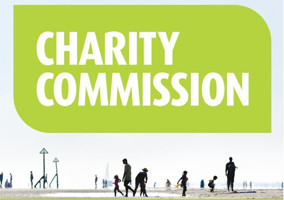More than a quarter of larger charities’ accounts are of an “unacceptable quality”, according to research published by the Charity Commission yesterday.
The regulator said that 74 per cent of charities with incomes over £25,000 in its latest sample filed accounts that were deemed “acceptable”. This is a slight decrease on the last time it carried out the research.
In April 2017 the Commission selected a random sample of 106 charities with an annual income of more than £25,000 with accounts covering the 12 months to 31 December 2015.
The last time it published this research was in April 2017 when it looked at charities with accounts filed in the 12 months to March 2015 and found that 75 per cent met its standard.
In the latest report 5 per cent of charities in the sample failed to meet the Commission’s standards because they did not provide either their accounts or annual report.
For 11 per cent of charities in the sample, the annual report filed was inadequate because it provided little or no information on the charitable activities carried out.
For 5 per cent of charities in the sample, the independent scrutiny report was inadequate, mainly because “the wording of the report demonstrated that the person carrying out the scrutiny was not familiar with the independent examination requirements”.
And in 5 per cent of cases, the accounts were inadequate because they were “incomplete or did not balance”.
Of the 28 charities that fell short of standards, one no longer needs to file because its income is now less than £25,000 and the other is now in default of its filing duties.
For two of the charities that submitted unacceptable accounts, including the one in default, the Commission has demanded that trustees correct and resubmit their accounts due to their containing “serious deficiencies”.
The Commission has sent guidance to the trustees of 17 charities to help them “prepare future sets of accounts to an acceptable standard”.
But for nine of those that submitted unacceptable accounts, the Commission has decided that no further action is required, “usually because the more recent accounts submitted are of acceptable quality”.
Smaller charities improving
A similar sample of 110 charities with an annual income of less than £25,000 in the year ending 2015 found more than a third were of an unacceptable quality, however this was higher than last year.
Some 64 per cent met the Commission’s basic standard, up from 55 per cent the last time the Commission did this research.
The smaller charities which fell short of the standard did so either because they failed to provide either their accounts or annual report or because their documents omitted key information.
Public benefit reporting
In another piece of research published yesterday the Commission found an increase in charities’ understanding of public benefit reporting.
Some 51 per cent of a sample of 106 charities with an annual income of more than £25,000 submitted annual reports that “demonstrated a clear understanding of the public benefit reporting requirement”.
This is an increase on the 46 per cent that passed the test previously.
Of the 52 charities whose annual reports did not meet the public benefit reporting requirement, four no longer need to file because their incomes are now less than £25,000, while two have been removed from the register and the other is now in default of its filing duties.
The Commission has provided guidance to the trustees of 41 charities help them meet the public benefit reporting requirement in future annual reports, while it has decided that no further action is required for 10 charities.
'More work to be done'
Commenting on the results, Nigel Davies, head of accountancy services at the Charity Commission, said more improvements were needed.
He said: “Producing a trustees’ annual report and accounts is not an administrative box-ticking exercise. It is a chance to show how your charity is making an impact and how you are delivering on your core purpose.
“Today’s results show that too many charities are still not meeting very basic standards when it comes to making key information available to the public.
“I am encouraged to see that an increasing number of trustees recognise the value of public benefit reporting, but there is clearly more work to be done across the sector.”
|
Related articles











